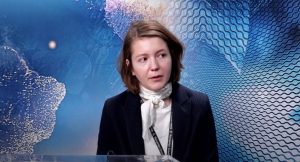
 Video
Video
The Iasi parliamentary lists surprise through the existence of some names which have no relationship with the Iasi district. Among the PDSR (Social-Democracy Party) offers we have the academician Razvan Theodorescu, who occupies the second position on the Senate list. The party supporting him owes him a lot, since Theodorescu is the one who thrills Iliescu’s supporters through his rhetorical art, which diminishes some of the electoral promises’ demagogy. A honourableness transfer for which Iliescu knows how to pay.
Another person mentioned by PDSR on the deputies’ list is Valer Dorneanu, ex-president of the Legislative Council. Dorneanu was an outstanding FSN (National Salvation Front) member.
As for Mircea Stanescu’s political activity, another new comer, it is unknown to all of us. He has the second position on the PD (Democratic Party) list for the Chamber of Deputies. He is Sorin Rosca Stanescu’s son; for a certain amount of time, he was one of Radu Vasile’s counsellors. Another surprise is offered to us by Mircea Cinteza, the Physicians College president, who is the first one on the PNL (National Liberal Party) list for the Senate. He doesn’t mean very much for the voters from Iasi, but at last he showed a certain interest in the Emergency Hospital and the Cardiology Department.
Some of the above-mentioned persons are known in Romania, but not necessarily in Iasi. The other new comers do not even have this privilege.
We shall see them engaged in action during the electoral campaign and then they will go back to Bucharest in order to take part in the internal life of the party. Most of them are simple party members who do not represent the electorate, but various obscure interests.
During the last ten years, the list-based voting system has deeply vitiated the Romanian political system. The lack of responsibility created an unproductive distance between Bucharest and the rest of the country, whose effect was a whole series of failures, tensions and frustrations. The political institutions of the country seem to have an autonomous agenda when they are perceived through the eyes of someone who does not live in Bucharest. They are under the influence of several groups of interests involved in all types of business mainly related to the black market.
Even if theoretically, the political leaders declare that they accept an uni-nominal or at least mixed system of voting, the reality is totally different. By putting it into practice, they would be deprived of the most important agents of their group interests. The fear manifested in relation to the uni-nominal vote is debatable: a group of local magnates could do a better job than some influential Bucharest-based personalities.
(Mihai CHIPER)